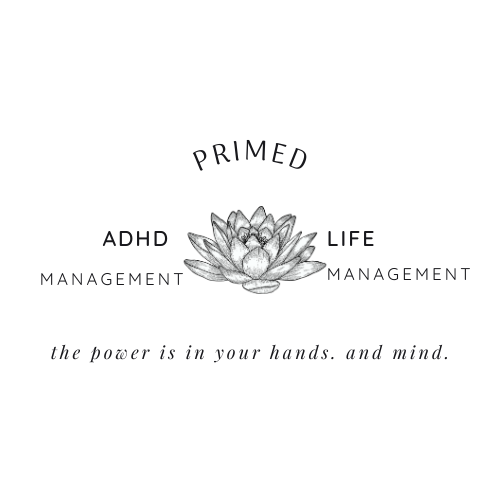Oh, ADHD and emotions.
Do you find yourself in full meltdown mode when emotions are released?
Do you show your emotions easily? Do people perceive you as aloof when really, you feel deeply?
Are your emotions easily triggered?
You are not alone. According to Psychology Today, about 70% of adults report problems with anger or emotion as part of their ADHD.
If you have ADHD, letting emotions out can be like turning on a spigot.
The emotions come and then they keep flowing. It can be overwhelming.
Sometimes we cut ourselves off emotionally. We act detached. Really, it’s a method of self-preservation, of keeping our shit together because we know that when we lose our shit, we really lose our shit.
I recall some instances in which I’ve been huddled in a ball rocking myself back and forth, in tears. Although I know better, I fight my feelings when sometimes, letting them out is the path of least resistance – and oh, how I prefer the path of least resistance.
One indication that an adult has ADHD is that (in addition to other symptoms) they have emotional outbursts that resemble those of a young child who missed their nap or is hungry.
Until the last couple of years, I thought it was exclusively a trait of people with Autism Spectrum Disorder.

Photo by Zachary Kadolph on Unsplash
Emotional Dysregulation and ADHD
People with ADHD feel things strongly. Not that neurotypical people don’t, but in the case of ADHD, it’s ADHD-specific, relating to brain activity. We tend to focus on one emotion and stay there. We linger in stories, even if they’re untrue. (How can it be true if it hasn’t happened?) We ruminate. Our imaginations run wild. We have trouble shifting focus.
Social anxiety
Social anxiety is another factor. The fears that we’re seen as incompetent sets us going.
Imposter syndrome or low self-esteem
Our own fears of not being good enough and our beliefs around self-worthiness can simmer beneath the surface. Some of us project that onto other people. Imagine one partner shouting to the other in reaction to an innocuous comment or feedback, “Don’t treat me like I’m stupid!”
Fight, flight, freeze
We panic. We can’t think rationally. We freak out.
Fear of emotion
All of that emotion that we’re stuffing down will simmer and eventually, the pressure will release. The spigot will open. The cork will pop.
Then the floodgates open and it’s not pretty.
We might like the range of emotion
The drama might give us a dopamine spike that makes us feel good but we go through a cycle of ups and downs and eventually, we crash.

ADHD and empathy
People with ADHD might look like they lack empathy. Some do lack empathy. Emotional immaturity can be a symptom of ADHD and with it, a lack of empathy. Sometimes.
A perceived lack of empathy goes alongside people with ADHD appearing selfish. Impulsivity can look like indifference or lack of caring. A lack of focus, hyperfocusing on yourself or what’s in front of you instead of someone else can look selfish.
Super empath overwhelm
It’s a superpower and a curse.
Because I AM empathetic and sensitive, sometimes I don’t have the emotional bandwidth to take on someone else’s emotions. If you look blue and I don’t ask you how you are, I might truly not want to know. This is not because I don’t care, it’s because I care about both of us. I love you and want to see you happy. However, sometimes my own mental health depends on not knowing that you’re not okay. Sometimes I can’t take on your shit. It’s overwhelming. It takes a lot of energy out of me. Sitting with your pain can exhaust me.
I hear some of you saying, “Oh poor you. Your friend is [whatever you imagine] and you only care about yourself?” I want to say it again: I care about both of us.
Sometimes the best way to be there for someone is to be able to maintain your composure. And sometimes it’s not.
I know it’s selfish of me to say it, but I need my own oxygen mask so that I can be there for you.
Maybe I will ask if you’re okay and what I can do, and then I’ll get out of there, have soup delivered to you, start a crowdfunding campaign for you, and then lie in bed.
At times when I find myself feeling dense energy, I ask myself if it’s mine or someone else’s. When someone close to be is in a funk, feels stressed out or we argue I’ll repeat silently, “This is not my stress.” It becomes a mantra.
It’s self-preservation.
One needs energetic boundaries. Those can be perceived as aloof.
Also notable: The depression connection
People with ADHD are prone to much higher rates of anxiety and depression.
*Advice*
1. Do a brain dump.
When emotions have you in a headlock and you’re stuck in the downward spiral, journal.
Journal some more.
Write it down. Write your triggers and your resulting emotions. Get the garbage out on the page.
I recommend a notepad and pen but if all you’ve got is your mobile device or screen, do that. One benefit of using your phone is that you can verbally rant into it and either save it as a recording or use a transcription app. You might go back to this brain dump, you might not. Sometimes just getting it out feels good but it also helps to revisit to look at patterns.
If you do write it on a piece of paper, consider burning or burying the paper ceremoniously.

2. Meditate.
Find a meditation track about anxiety. You might hate it at first, but give it a shot.
3. Breathe.
Meditation not for you? Don’t underestimate mindfulness and slow breathing.
4. Exercise.
Exercise can help regulate your mood and give you an endorphin boost.
Choose your activity.
A walk might clear your head. Punching a bag or doing an aggressive activity can get the aggression out. Dancing feels good. Yoga can chill you out.
5. Clean up your diet
Cut the sugar, dairy, coffee, alcohol and inflammatory foods. Inflammatory foods affect the brain and can cause tantrum behavior.
A nutritionist can help you here. I’m certified as a Transformational Nutritionist and so it’s one thing we can chat about.
6. Cognitive Behavioural Therapy (CBT)
CBT can help you reframe stories and teach you to cope.
7. CBD
Cannabis, but without THC. If it’s legal where you are, try some CBT to chill out.
8. Make sure your needs are met.
Take a nap. Eat some good food. Hydrate. It’s amazing the damage that low blood sugar and fatigue can do to your brain and mood.
I can not emphasize this enough.

Photo by Gregory Pappas on Unsplash
8. See your doctor
See your doctor to rule out another disorder. Maybe you have an anxiety disorder or bipolar.
10. Know it will pass
Recognize that it’s okay to have feelings. Sometimes they will be big. Apologize if you need to. Make amends. Forgive yourself. Don’t dwell.
Go do something nice for yourself.
You’re going to be fine.
